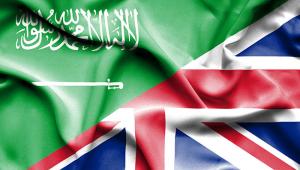By Nick Mann | 21 February 2013
UK Prime Minister David Cameron has said he is willing to spend more of the aid budget on improving stability in conflict-hit countries.
Speaking in India, Cameron said the UK Department for International Development was already working ‘incredibly closely’ with the Foreign & Commonwealth Office and Ministry of Defence.
The departments should work even more closely together to ‘make sure the funds we have at our disposal are used to provide basic levels of stability and security in deeply broken and fragile states’, he explained. Almost one-third (30%) of UK bilateral aid is expected to be spent in fragile and conflict-afflicted countries by 2014/15.
In particular, Cameron said he was ‘very open’ to pooling budgets along the lines of the ‘Conflict Pool', which combines funds from the DFID budget with cash from the Foreign & Commonwealth Office and Ministry of Defence. It is spent on reducing conflict and its impact around the world.
‘Can we do more? Can we build on this approach? I’m very open to ideas like that,’ he said. ‘We have our moral responsibilities for tackling poverty around the world; we also have our national security responsibilities for mending conflict states and helping with development around the world. We should see DFID in that context.’
Following his comments, a spokeswoman for the DFID stressed that all the department’s spending was in line with internationally agreed guidelines. The Organisation for Economic Development’s definition of aid excludes spending on military equipment and services and ‘most’ peacekeeping spending.
However, the Labour Opposition in the UK Parliament labelled Cameron’s comments a ‘cynical’ attempt to appease Right-wing backbench MPs who have criticised the government’s commitment to ring-fencing the aid budget when other government departments face cuts.
Shadow international development secretary Ivan Lewis said: ‘Labour supports a co-ordinated approach to tackling conflict which brings together defence, diplomacy and development. But as Cameron's own Number 10 aides have acknowledged, UK aid money can only be legitimately used for security, demobilisation and peacekeeping. The major proportion of it must continue to be used to alleviate poverty, improve basic services and support job creation, all of which are central to ending conflicts everywhere.
‘Cameron's attempt to suggest aid money can be used to offset deep defence cuts is misleading and will not stand up to scrutiny.’
Charity Christian Aid said it would be ‘deeply concerned’ about any move to link aid with military spending in fragile states. In a statement, it explained: ‘Aid diverted to “security, peacekeeping and demobilisation” could have long-term implications.
‘The blurring of the lines between military action and aid delivery could mean that aid workers become associated with those forces, meaning they are not only put at risk, but find it hard to gain the trust of the people they are trying to help.’
Instead, the charity urged the government to focus its aid spending on poverty reduction.













